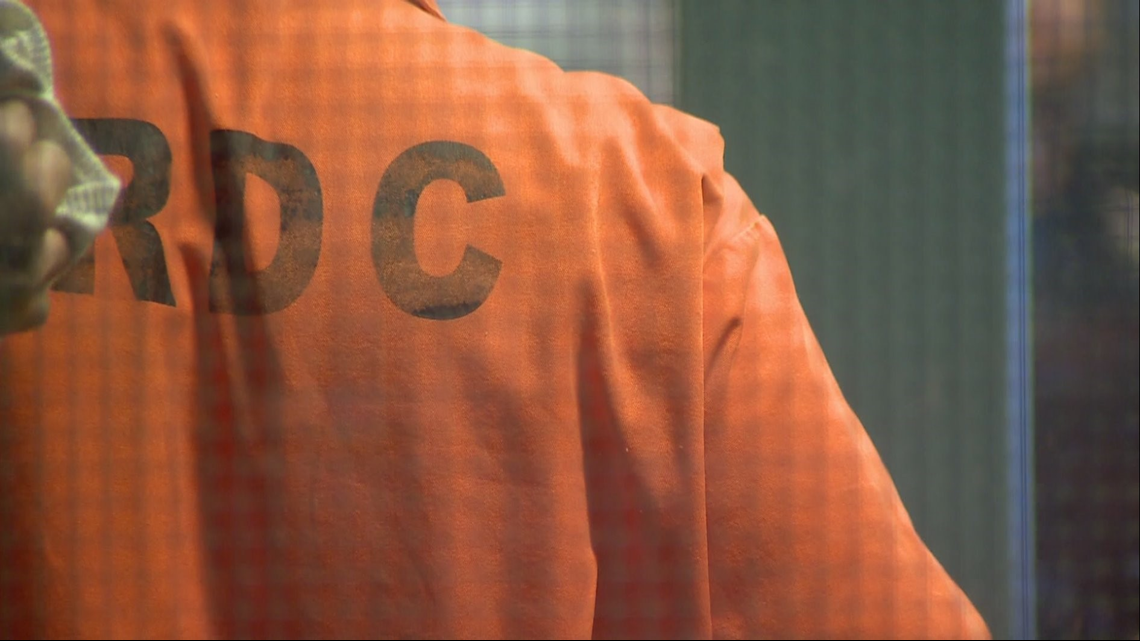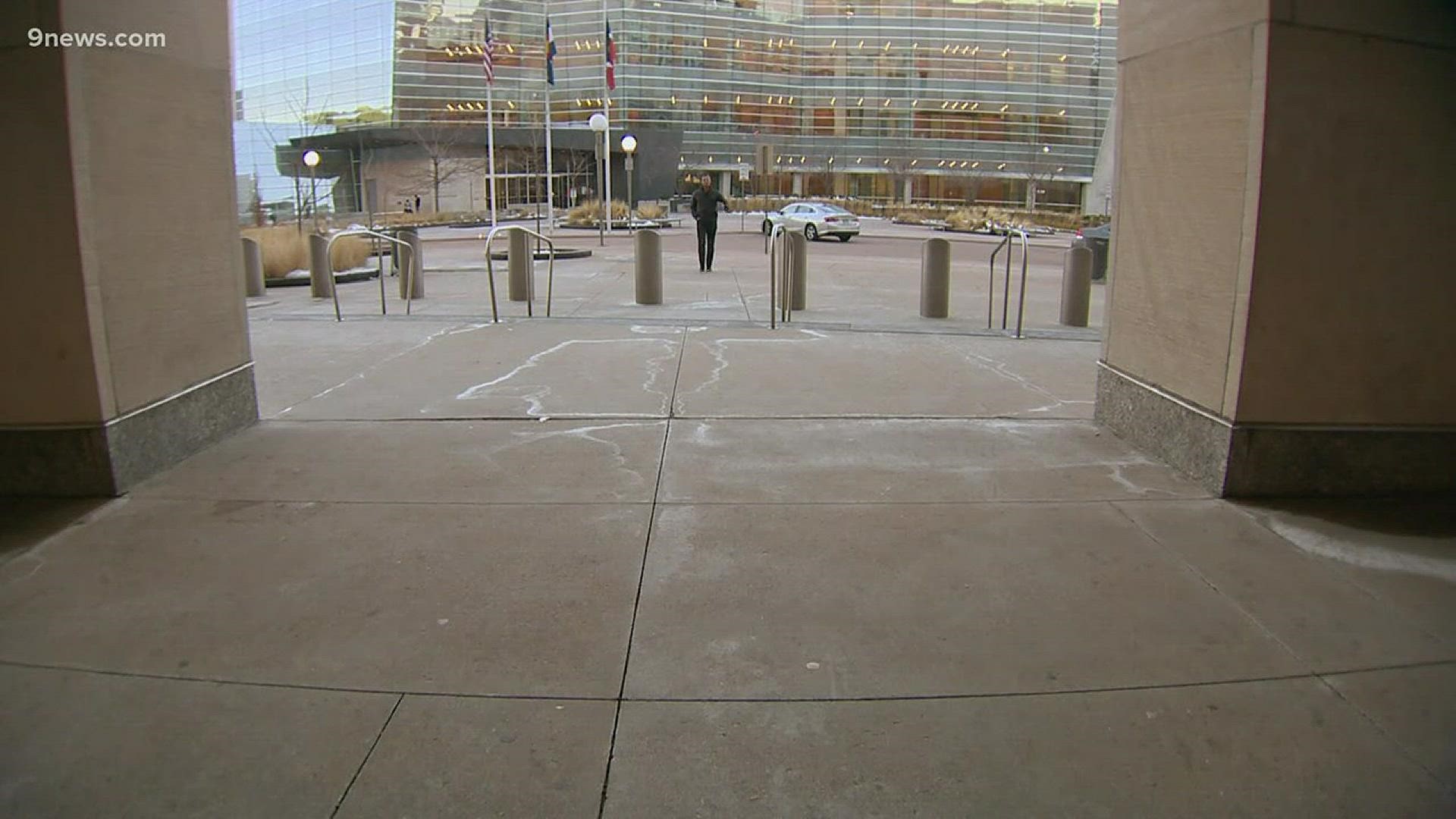DENVER — When people get arrested they can be angry. Their freedoms have been stripped and they’re often intoxicated.
When the cuffs come off at the downtown Detention Center, Denver Sheriff Department deputies staffed at intake are the first to interact with them.
“Just when you think you've seen it all someone comes up with something new,” said Capt. Jamison Brown, the intake commander, standing in a garage waiting for the next police car to drop off an accused criminal. “You’re always on guard. Any time somebody comes in our facility, we don’t know who they are, we don’t know anything about them, what they have on them.”
The environment breeds tension. Deputies know how to keep tempers from flaring. Ask any one of them and they’ll tell you their crisis intervention training works. But sometimes an inmate lashes out. Forty-eight Denver Sheriff deputies have been assaulted by inmates in 2018 a total of 97 times. Six deputies had to be taken to the hospital. Forty percent of use of force incidents in the entire Denver Sheriff Department happen at jail intake.
“It can go from good to bad very quickly and a lot of times it can get really bad. I’ve been assaulted,” said deputy Richard Sawyer while taking fingerprints and mugshots. “I really don’t remember it. I was knocked out and I don’t remember it.”


Just a few months ago, he came to in an ambulance racing to the hospital. The headaches lasted for months. In 25 years as a deputy, he had never experienced a serious injury.
“Society gets a misconception about what we actually are," he said. "We are human beings and unfortunately, we have to come in and deal with the bad side of human beings. And it’s not always pretty."
Despite the negatives, he said one of the most redeeming parts of the job is helping people get back on the right track.
“Some people have unfortunate circumstances and I’ve had the opportunity to help them,” he said.
But teaching can be tough in such a strict environment.
“Just today I’ve dealt with 52 different personalities coming in. Different attitudes,” Sawyer explained.
Help often comes in the form of medical attention. Every person that moves through intake gets a medical check and behavioral health staff from Denver Health are in the jail at all hours. Capt. Brown said a major contributor to the high number of assaults is the increased number of inmates who come to jail after a mental health crisis.
“The biggest problem we have right now is there’s not a lot of places for people to go," Brown said. "So, they end up coming to our facilities and we end up treating people for mental health who could really benefit being in a different environment.”
He points to a recent inmate who police brought to jail accused of shoplifting a sandwich. Brown said he believes he could have benefited from mental health intervention out on the street but instead ended up assaulting several deputies and getting nine years in prison for it.


“If they get provided that care right there, that diverts them from coming into jail. So, they go get that help and never even hit our doors,” he said.
The Denver Sheriff Department is the busiest in the state, processing 36,000 people a year. Brown’s goal is to move inmates through his facility as expeditiously as possible and hopefully provide them some sort of treatment that sets more inmates on the right path when they get out.
Most importantly, he’s reminding deputies to keep their head on a swivel; to keep their guard up and pay close attention to each person they may deal with.
“They put their lives on the line every day they come in here," Brown said. "They never know when someone is going to turn on them or have a bad day and assault them. And they’re willing to take that risk.”
Watch our 9Wants to Know investigative reports:

